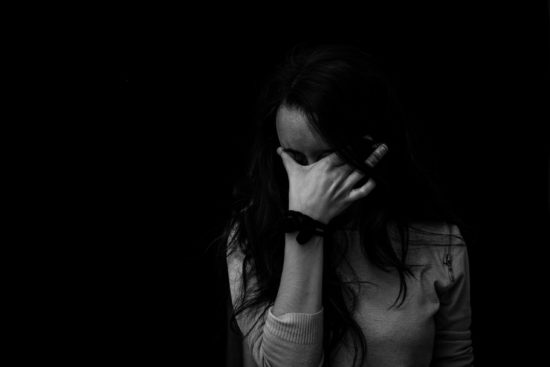
When 2020 began, few people guessed that it would be completely dominated by a small virus that had reportedly broken out in China late in the previous year. In the months that followed, as the coronavirus swept around the globe, it shut down countries, crippled economies, and sent billions of individuals into a state of quarantine.
The Mental Struggle During Quarantine
As self-isolation took place in the initial wake of COVID-19, many individuals quickly began to feel its daunting effects. The stresses and strains of the unfolding disaster developed into anxiety and even depression. Nearly 45% of American adults even admitted to a decline in mental health directly attributed to the virus.
Even as restrictions began to lift and officials attempted to breathe life back into the deflated economy, life refused to show any signs of truly returning to a state of normalcy in the near future.
For instance, the U.S. quickly saw COVID-19 cases surge as the virus came back to bite its citizens as they attempt to engage in summer activities. At the same time, other countries like Brazil were getting seriously hit by the virus for the first time. Regardless of the specific location, as the year dragged on, the general state of self-isolation — government quarantine or not — continued to persist.
This protracted state of worrisome isolation has left many “out in the cold,” so to speak, attempting to fend off fears and maintain their sanity as they endlessly shelter in place and wait for the entire nightmarish scenario to blow over.
Ways to Protect Mental Health in Isolation
If you can relate to the struggle to keep your mental state steady during isolation, it’s important that you don’t simply accept the inevitable. Here are several ways that you can actively fight back against anxiety and depression in order to maintain your mental wellness, even in the midst of a pandemic.
Avoid Social Media
It was already tempting to spend copious amounts of time on social media before everyone was stuck at home. Now, it can feel nearly impossible to stay away from that Facebook or Instagram app.
However, over time it has becomes painfully apparent that social media addiction is really bad for your mental health. Not only can it discourage you, stoke fears, amplify anxiety, and drag you into the depths of despair, it can even impact your physical health.
For instance, if a teen is exposed via social media to friends or family members who are using drugs or abusing alcohol, it can add to the peer pressure or even simply spark curiosity that can lead to substance abuse.
The point is, social media can be extremely bad for your mental health — especially when you’re left alone with your own thoughts for months on end. It’s addictive and exposes you to numerous fears and anxiety-inducing situations. Try to avoid or, at the least, limit your social media usage if you want to stay sane while in quarantine.
Spend Time Outside
Everyone knows that spending time outside is generally good for your health, but it turns out that there are actually quite a few scientific proofs that back up the concept as well. For instance, science has shown that:
- Going for a protracted walk outside can lower levels of negative thinking.
- Ten minutes spent in nature can increase levels of happiness.
- Exercising outdoors provides better mental benefits than doing so indoors.
- Being outside can lower blood pressure and improve sleep, both of which are intimately connected to your mental health.
- Spending time outside can increase cognitive function and boost creativity.
- Any time spent outdoors can lead to greater satisfaction in life.
While certain outdoor activities revolve around having plenty of space, most of these benefits can be tapped into by simply standing on a porch, spending time in an urban backyard, or walking down the street.
Invest in Your Community
Social interaction is a critical part of mental health — but, of course, it’s difficult to come by when you’re self-isolated. However, you can find ways to integrate social interaction into your life by:
- Proactively texting, calling, or video chatting with friends and family.
- Playing online games with loved ones — especially if you set up a Discord or Google Chat conversation to enhance communication while you play.
- Volunteering to help your community social distance in appropriate ways such as helping those at higher risk run errands or supporting local businesses through physical shopping excursions — just remember to wear a mask.
If you find ways to get involved with your community, it can help you remember that you’re part of something bigger than yourself.
Lean on Telemedicine
Finally, if you find that your mental state is truly deteriorating through excessive time spent alone, don’t hesitate to reach out to a professional. Whether it’s your doctor, a cognitive behavioral therapist, or any other healthcare professional, don’t hesitate to take that step before more damage is done.
Fortunately, you don’t need to visit a doctor’s office or hospital in order to receive care these days, either. You can simply use telemedicine in order to start the process and, likely, even remotely attend appointments as you go along.
Staying Safe and Sane During a Quarantine
No matter what happens in the weeks and months ahead, it’s important to keep your mind sharp as you go along. If you take the time to proactively protect the mental health of both you and your loved ones, you’ll be better equipped to handle whatever challenges — coronavirus connected or not — may come your way in the future.




